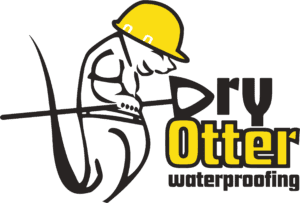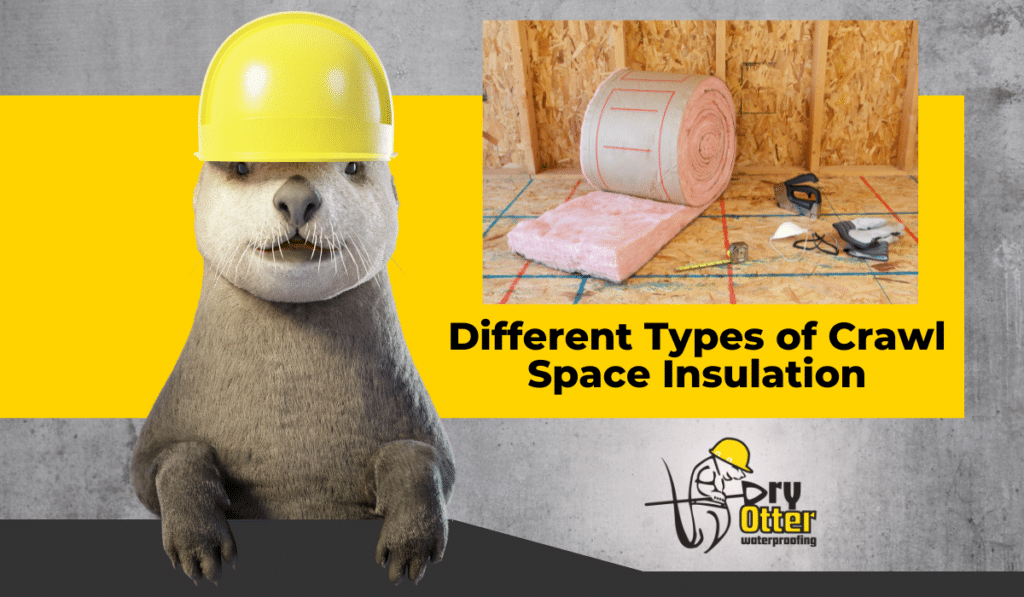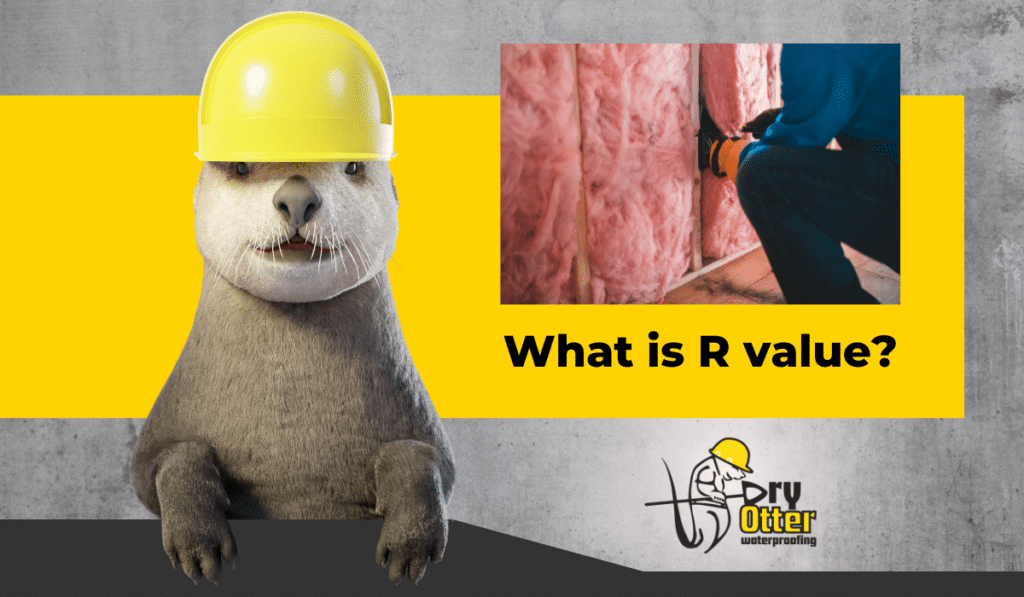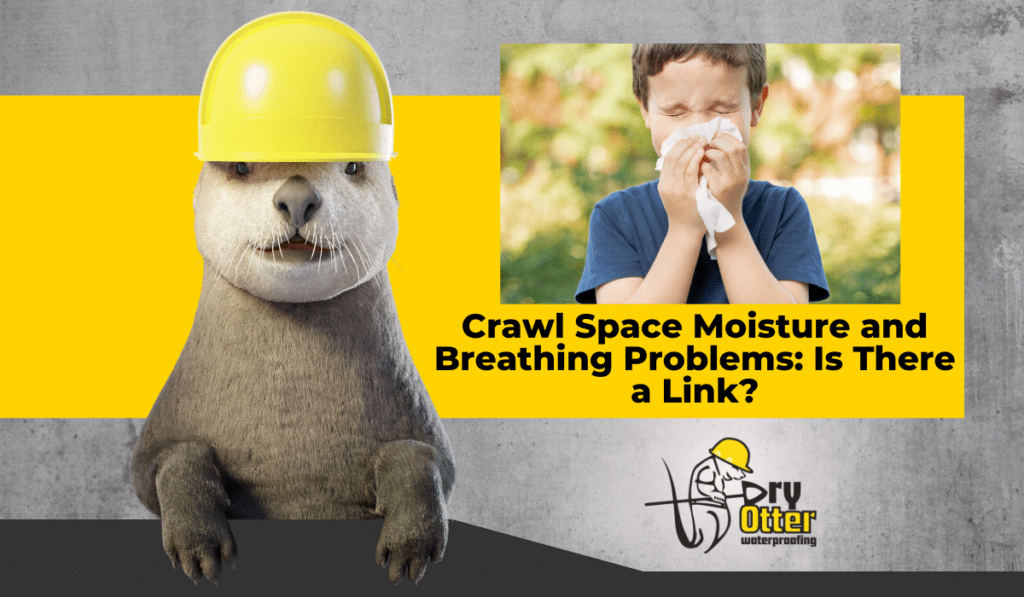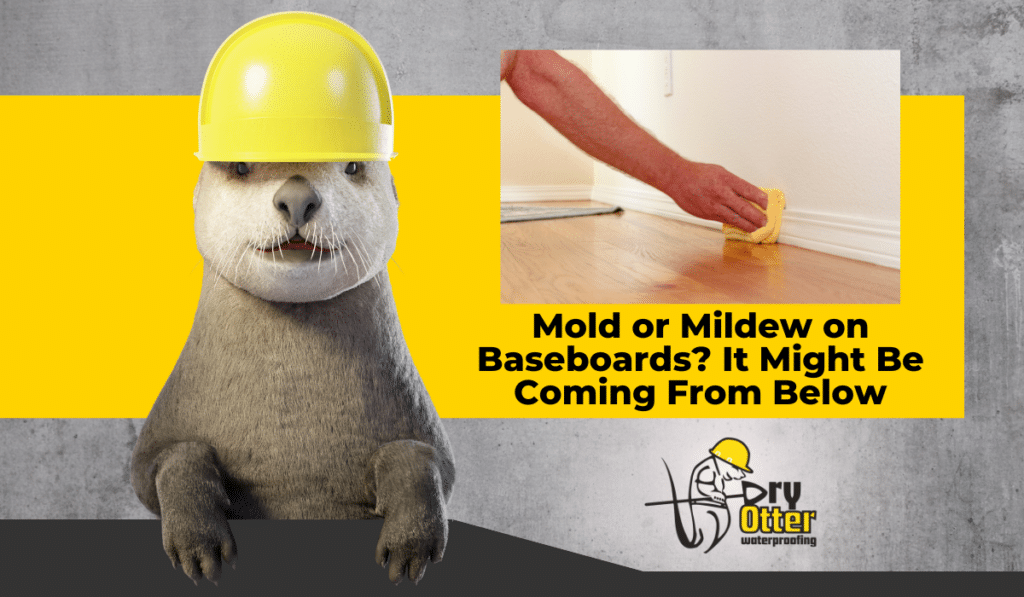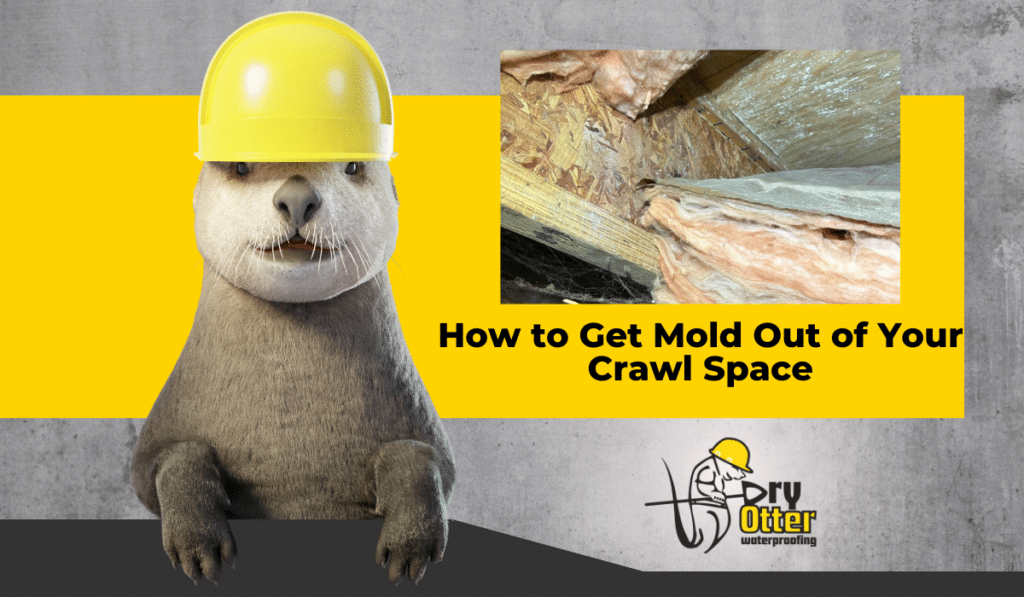Sniff sniff… what’s that smell? If your house has an odd odor and you can’t figure out where it’s coming from, you’re not the only one. Strange smells around the house are more common than you’d think, and sometimes the source is something simple. Other times, it’s a warning sign of a bigger issue.
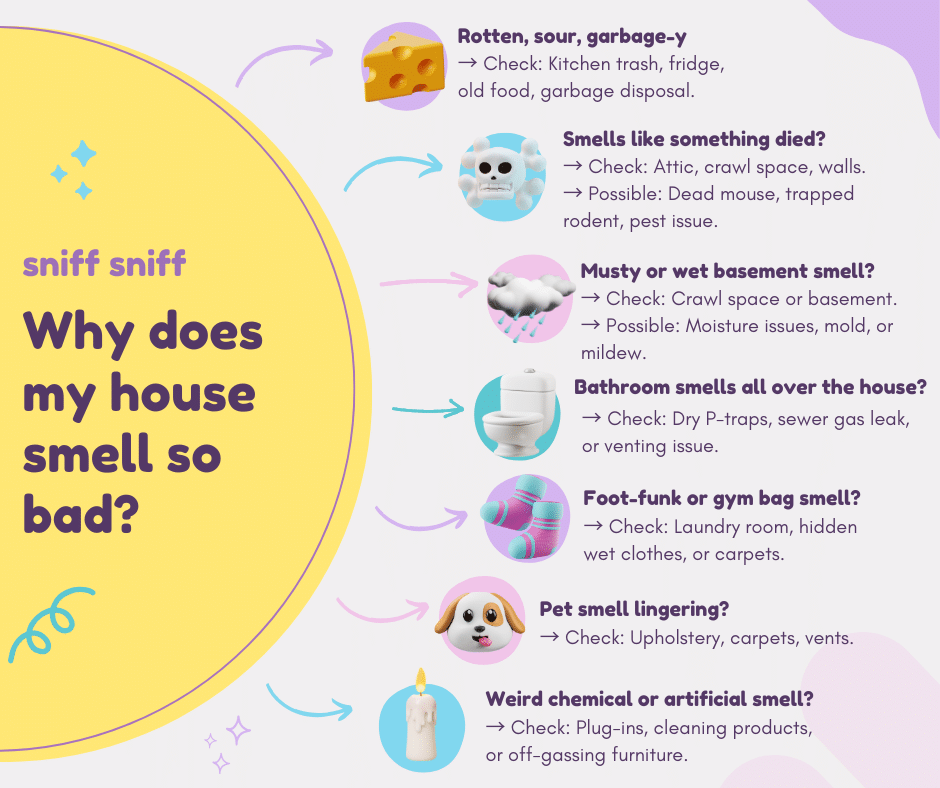
Here’s a breakdown of common household smells, where they come from, and how to get rid of them.
Rotten, sour, or garbage-like smell
Start by checking the kitchen. Look at the trash can, inside the fridge, and the garbage disposal. Old food or something that slipped behind the fridge could be the culprit. A dirty sink drain can also build up bacteria that gives off a nasty odor.
Smells like something died
Unfortunately, this usually means exactly what it sounds like. Check the attic, crawl space, or inside the walls. Mice and other small pests sometimes get stuck in tight spaces and don’t make it out. If that’s the case, you’ll need to locate and remove the source. Pest control may be helpful if you’re not sure how to handle it.
Musty or damp smell
If your house smells musty, especially after rain or in humid weather, it could be a moisture issue. Look in your crawl space or basement for signs of standing water, damp soil, or mildew. Moisture problems under the home can lead to mold growth, wood rot, and even cause the smell to rise into the living space through the HVAC system or floorboards. A vapor barrier or dehumidifier can help if that’s the cause.
Bathroom smell throughout the house
If you notice a bathroom-like smell even when you’re not near the bathroom, there may be a plumbing issue. Check for dry P-traps, which can happen when drains haven’t been used in a while. Sewer gas can come up through the pipes if the trap is dry. Also look into possible venting issues or sewer line leaks.
Foot-funk or gym bag smell
This type of odor usually comes from laundry or soft surfaces. Check for wet clothes that didn’t dry properly, or forgotten loads of laundry. Carpets and rugs can also hold on to odors if they’ve been exposed to moisture.
Pet smell that lingers
Even if your pets are clean, the smell can stick around. Check your furniture, carpets, and air vents. Pet hair and dander build up over time, especially in soft materials. A deep clean can help cut down on odors.
Chemical or artificial smell
Sometimes the source of the smell isn’t something gone bad, but something new. Check for plug-in air fresheners, cleaning supplies, or new furniture. Some items release VOCs (volatile organic compounds), which can create a strong chemical odor. These should fade over time, but it’s good to keep your space well-ventilated.
Still can’t figure it out?
If you’ve crossed off food, pets, laundry, and the usual suspects, the real issue might be hidden below your home. Crawl spaces are one of the most overlooked sources of odor, and they can quietly collect moisture, mold, and even pests without you noticing. That musty smell might be coming from underneath your feet.
What to do next
If you’re in the Charlotte, Lake Norman, or Hickory area and suspect something is off under your home, we can help. Our team specializes in crawl space inspections and waterproofing solutions that can protect your home and get rid of those mystery smells for good.
